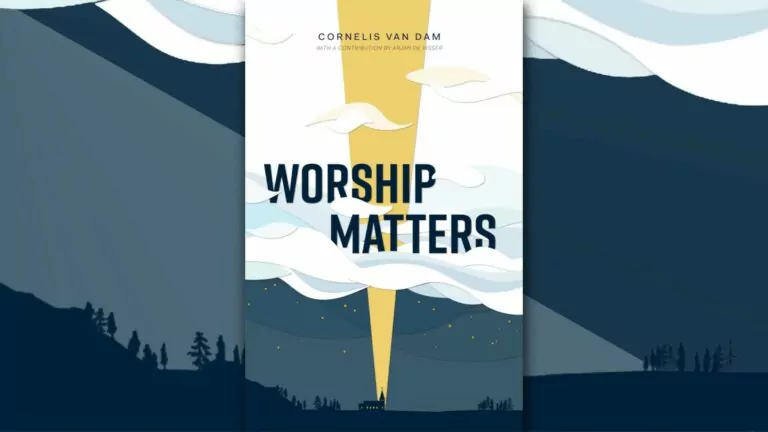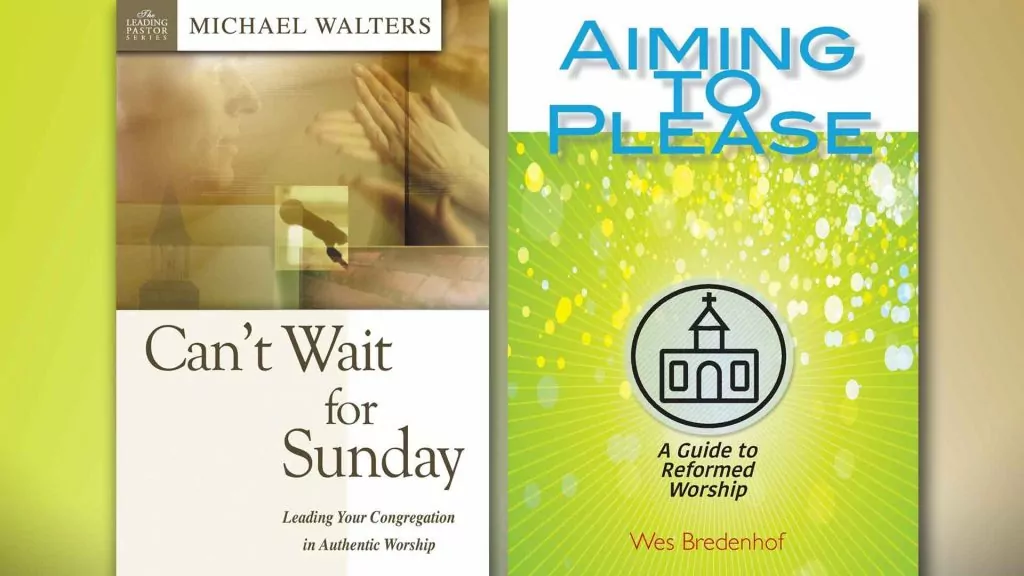by Cornelis Van Dam
2021 / 327 pages
The deeper I got into this book, the more I appreciated its simple title, Worship Matters. In this volume, Dr. Cornelis Van Dam has collected about two dozen of his articles about the church’s worship of our triune God. He addresses many worship-related topics: the meaning of the Lord’s day, the importance of preaching, the place of the Ten Commandments, the gift of congregational singing, the function of the second service, and much more.
There are numerous “worship matters,” but what becomes even more clear from this book is that worship matters. From the first page to the last, Van Dam impresses on us the immense privilege and responsibility that are ours when we meet with God in public worship. God has been so gracious to reveal Himself through His Word, to tell us about the way of salvation opened by the crucified and risen Christ, and to transform us by His Holy Spirit. In humility and reverence, we then respond to God with praise, drawing near to the holy Lord with a desire to give Him our very best. Such a spirit of worship must characterise our entire life, but in a special way we may honour God together as congregation on the Lord’s day.
Van Dam does not attempt to treat every aspect of Reformed liturgy, but the ones that he does are clearly and helpfully explained. For instance, he has excellent chapters on Psalm-singing, the public reading of Scripture, musical accompaniment, and the closing benediction. Time and again, his liturgical explorations demonstrate the truth of Article 7 of the Belgic Confession, where we confess the sufficiency of God’s Word, and where we state, “The whole manner of worship which God requires of us is written in [Scripture] at length.” Drawing on Old and New Testament alike, Van Dam shows the depths and riches of Reformed worship.
In his study of worship matters, Van Dam also doesn’t shy away from some controversial topics. He evaluates the trend of removing the reading of the law from Reformed liturgy, or having people other than office bearers read Scripture in a worship service. He considers the question of whether we can still sing the so-called imprecatory Psalms, addresses the ever-sensitive topic of our Sunday clothing, and discusses the place of liturgical dance. I will leave these intriguing topics for you to read about and consider.
Dr. Arjan de Visser contributes a convincing and timely chapter on being “An Attractive Church.” If we desire to be faithful in our prophetic task, we should think about what will truly (and enduringly) attract people to our churches. Should we be prepared to modify our liturgy and message to make them more accessible? Or does Scripture show that true attraction will be based on something else?
When a book is good, one can always wish it was a little longer. And so I arrived at the last page wishing that Van Dam had touched on a few more worship matters. His chapter on baptism would have been nicely complemented with a chapter on the Lord’s Supper. A study of the offering would be welcome too, especially in a time when it seems that many of us “pass the bag” – perhaps it’s because of the trend towards a cashless economy, or it’s for some other reason. Just what is the Biblical importance of the offertory in public worship? But an author can’t say everything in a book, of course, and the ground that Van Dam has chosen to cover is valuable.
This book would be useful for any church member to read and reflect on. It originates from the pen/keyboard of a professor of theology, but it is not a difficult or complicated book. Rather, its brief chapters are clearly written, carefully organized, and thoroughly Scriptural.
While helpful for any church member, this book would also be beneficial for consistories to study together, maybe taking time each meeting to consider a chapter or two. For a consistory, it is inevitable that questions concerning the worship services arise. This might happen through their own discussions, or when members suggest different approaches. Sometimes we feel threatened by any talk of liturgical change—or conversely, we’re sure that such changes will remedy a range of our problems as church—but in any case, we should be ready to seek faithful and upbuilding practices for our liturgy. This book supplies us with solid Scriptural principles and directions for the worship of our great and holy God. It’s worth a careful read, because worship matters!
Canadians can find it at Reformed Christian Books, ProvidenceBooksPress.com, and elsewhere.













